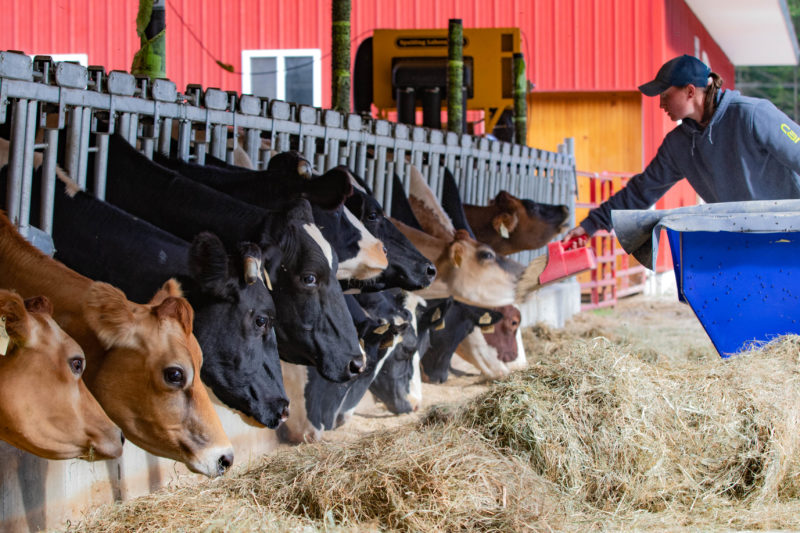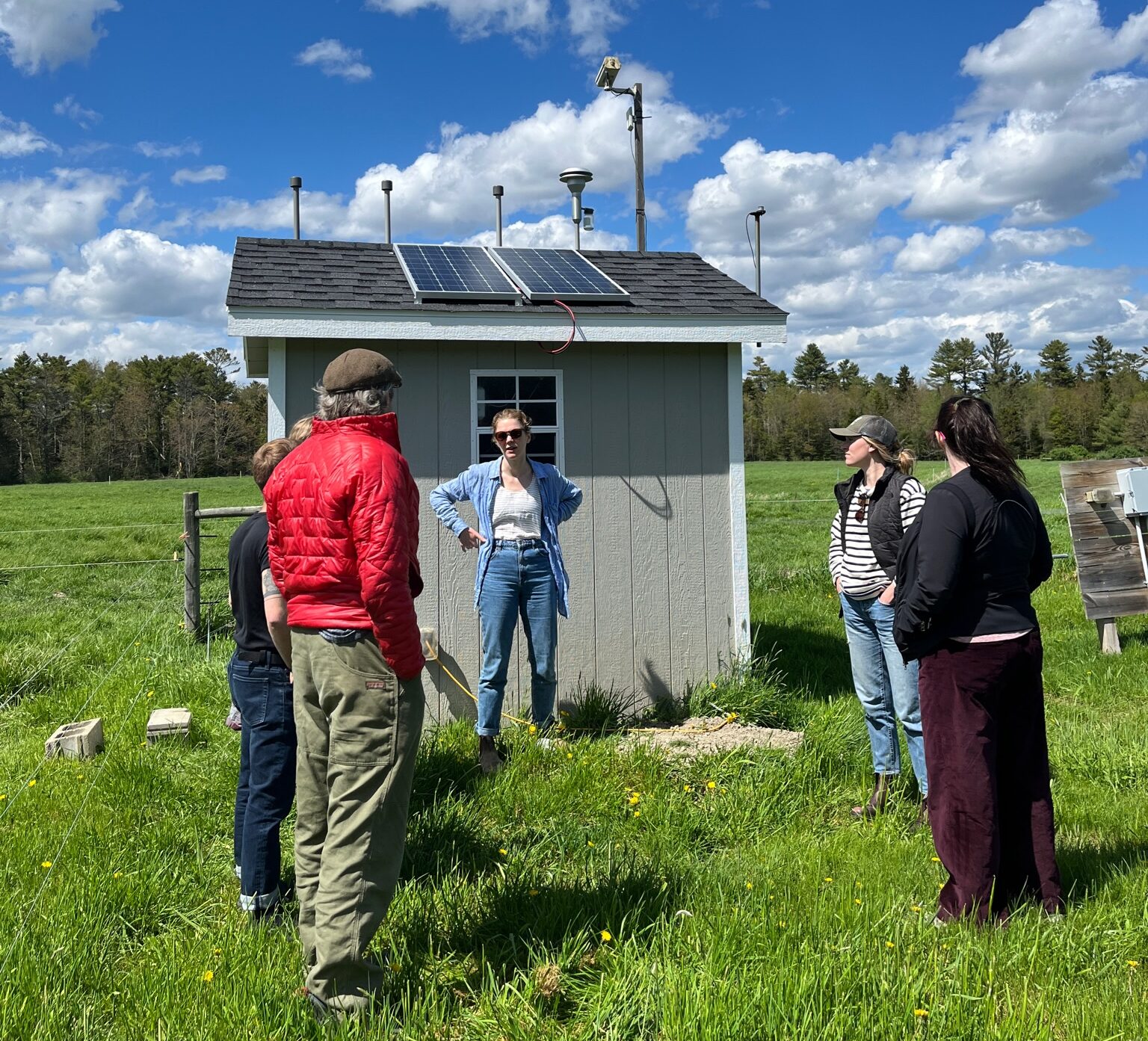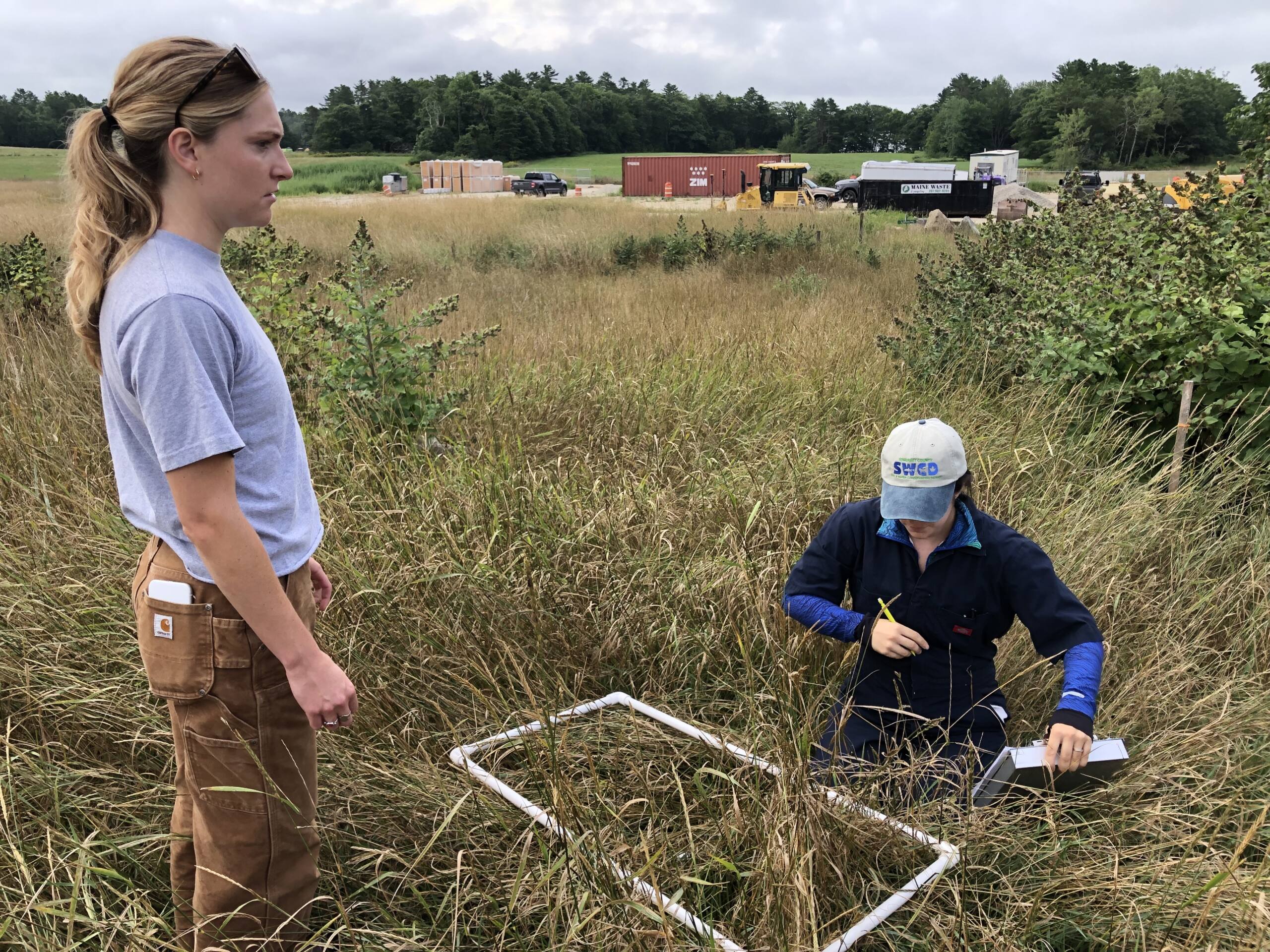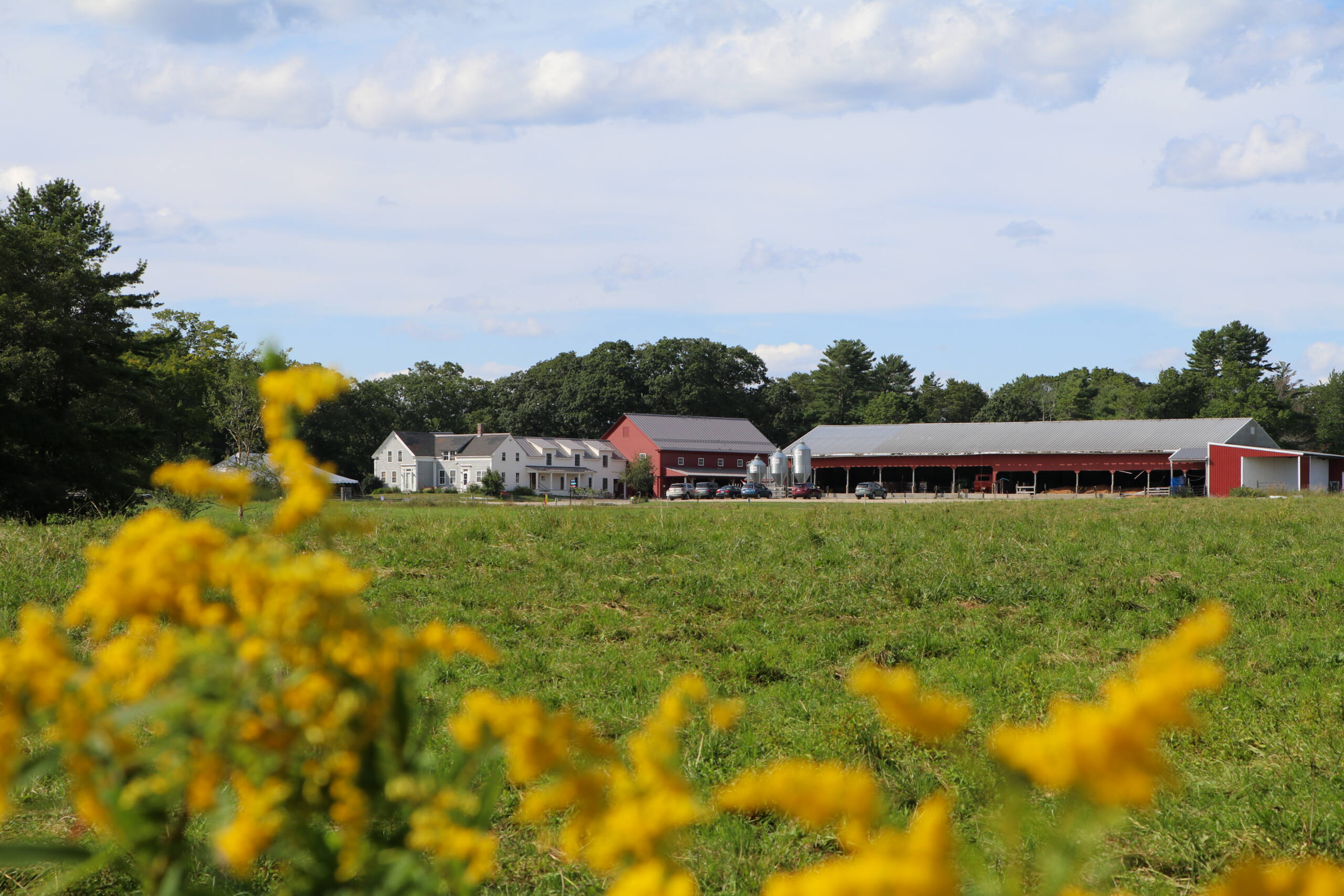Maine Seaweeds to Reduce Methane Emissions
This project is a multi-year collaboration funded by the U.S. Department of Agriculture and includes a multidisciplinary team of scientists, researchers, and farmers. Through this project, Wolfe’s Neck Center’s Organic Dairy team works with scientists from Bigelow Laboratory to study the effect of Maine seaweed in a cow’s diet and its potential for methane emissions reduction.



